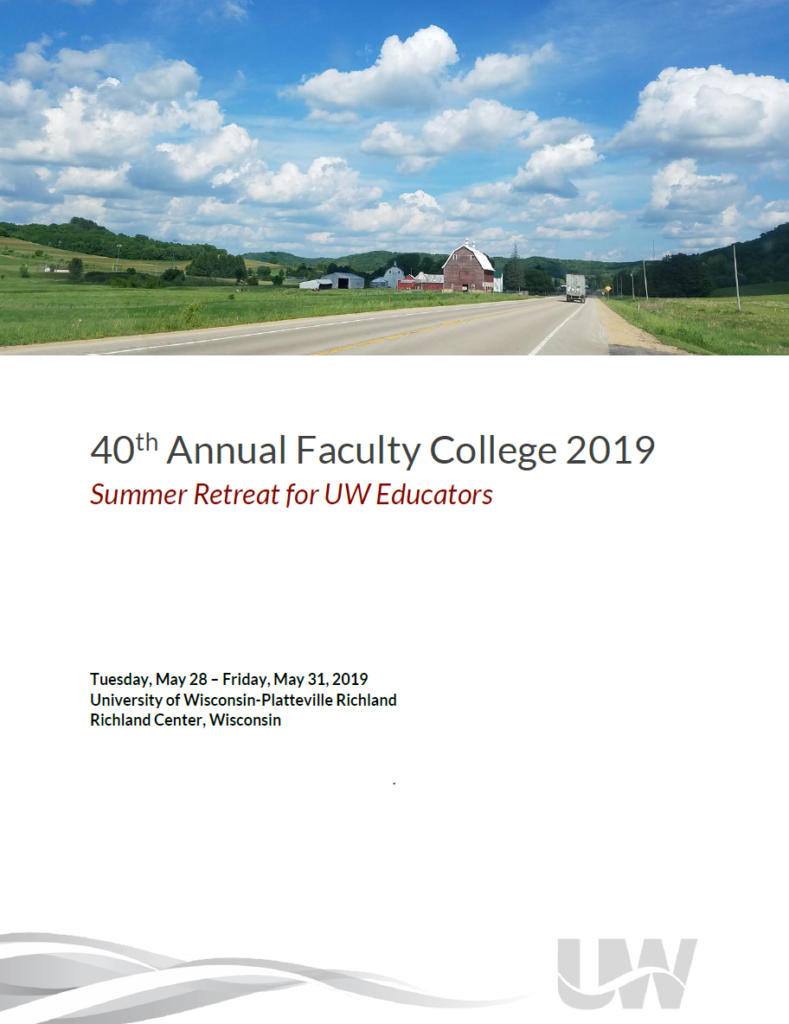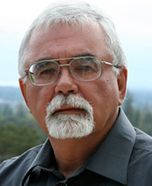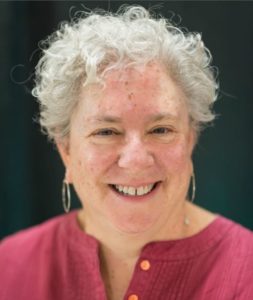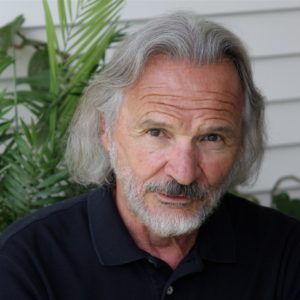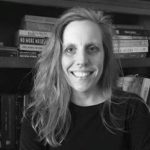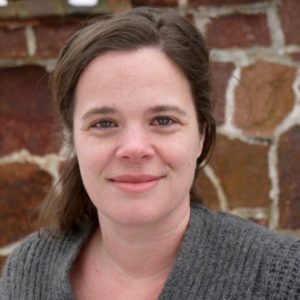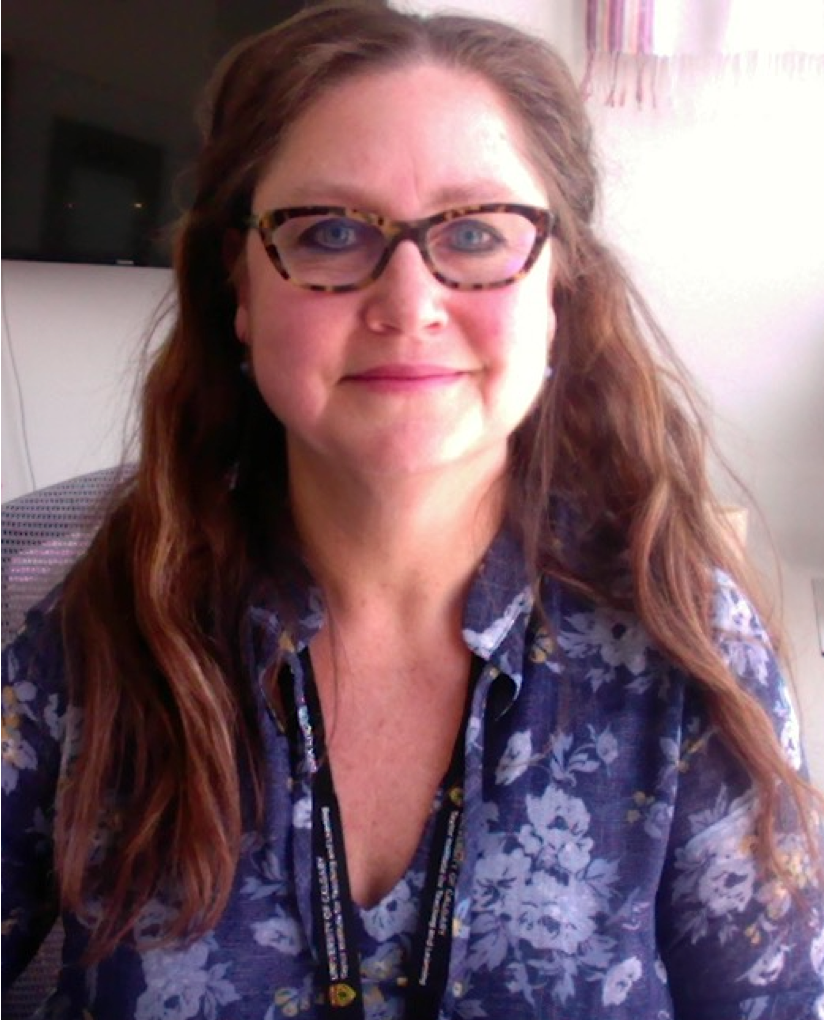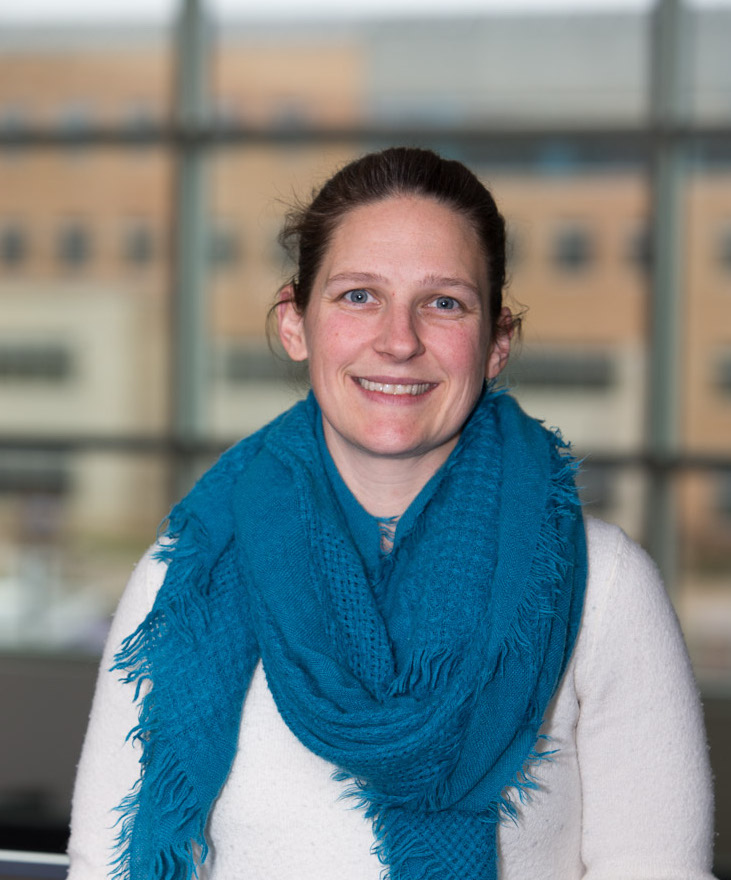40th Annual
May 28 — May 31, 2019
UW-Platteville Richland, Richland Center, Wisconsin
Faculty College is an annual summer retreat for UW System educators. Every year, typically at the transition from May to June, approximately 100 faculty and instructional academic staff from throughout the Wisconsin System meet at UW-Platteville Richland Center for three days of intensive exploration of teaching, learning, and curricular issues. UW-Platteville Richland is nestled in the unglaciated hills of Wisconsin’s scenic Southwest, featuring hiking and jogging paths along streams, through wooded bluffs and peaceful green space. Appointed by their Provosts, participants also engage in shared meals, contemplative walks, and collegiality across disciplines and universities. Participants are highly encouraged to accept on-campus lodging as part of a living-learning community, a concept that many of our students find meaningful in their growth and development as engaged citizens.
Renee A. Meyers Memorial Address
Nancy Chick, Faculty Development Director
Rollins College, Florida
Reflections on the UW System, the Scholarship of Teaching and Learning, and Responsible Peers
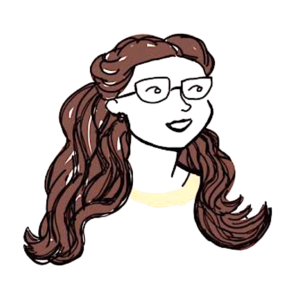
This 40th anniversary of Faculty College is a time of celebration and reflection, both collectively and individually. The University of Wisconsin System and its campuses, even in times of austerity and change, remain leaders in the scholarship of teaching and learning (SoTL). Those who participate in OPID’s programs and events, as well as the campus-specific partners, continue to contribute actively to international conversations about postsecondary teaching and learning. What is so special about the approach to faculty development and SoTL here? What is the secret sauce that keeps Wisconsin teacher-scholars so engaged and relevant? In this talk, I’ll draw from my time in the UW System and what I’ve learned since to share my thoughts on these questions–namely, that SoTL is understood as more than an activity, a practice, an approach. It’s also a way of being a colleague and a peer.
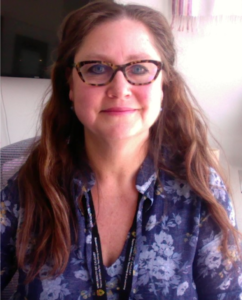
Nancy Chick joined Rollins College in July of 2018. Since earning her PhD in 1998, she has been a faculty member in English Departments — first in the former University of Wisconsin Colleges, where she achieved the rank of full professor in the department of English and co-directed the Wisconsin Teaching Fellows and Scholars Program on one of the smallest campuses in the UW System, then at Vanderbilt University, where she served as assistant director for the university’s Center for Teaching. and most recent appointment was as academic director for the Taylor Institute for Teaching and Learning at the University of Calgary. During her life as a faculty member, she has been a passionate participant in faculty development on teaching and learning. In the last 15 years, she has taken on more leadership roles in this faculty development, particularly related to the scholarship of teaching and learning (SoTL).
Nancy has authored, co-authored, edited, and co-edited a range of publications about teaching, about the results of her SoTL projects, and about SoTL as a field. In 2011, she was selected as the founding editor of Teaching & Learning Inquiry, the journal of the International Society for the Scholarship of Teaching and Learning (ISSOTL), and selected Gary Poole (University of British Columbia) as co-editor, and the journal is now in wrapping up its sixth year of publication. She brought TLI‘s editorial office with her to Rollins and will be working with Rollins students as the journal’s editorial manager. For more information, view Nancy’s online portfolio at nancychick.com.
Commemorative Panel: 40 Years of Faculty College
Current & Former Faculty Development Leaders in the UW System
Professor Bassam Z. Shakhashiri, William T. Evjue Distinguished Chair for the Wisconsin Idea and Director, Wisconsin Initiative for Science Literacy, Chemistry, UW-Madison, SCIENCE IS FUN. Dr. Shakhashiri was the founding Director of the Undergraduate Teaching Improvement Council (UTIC) 1977; renamed OPID in 2000.
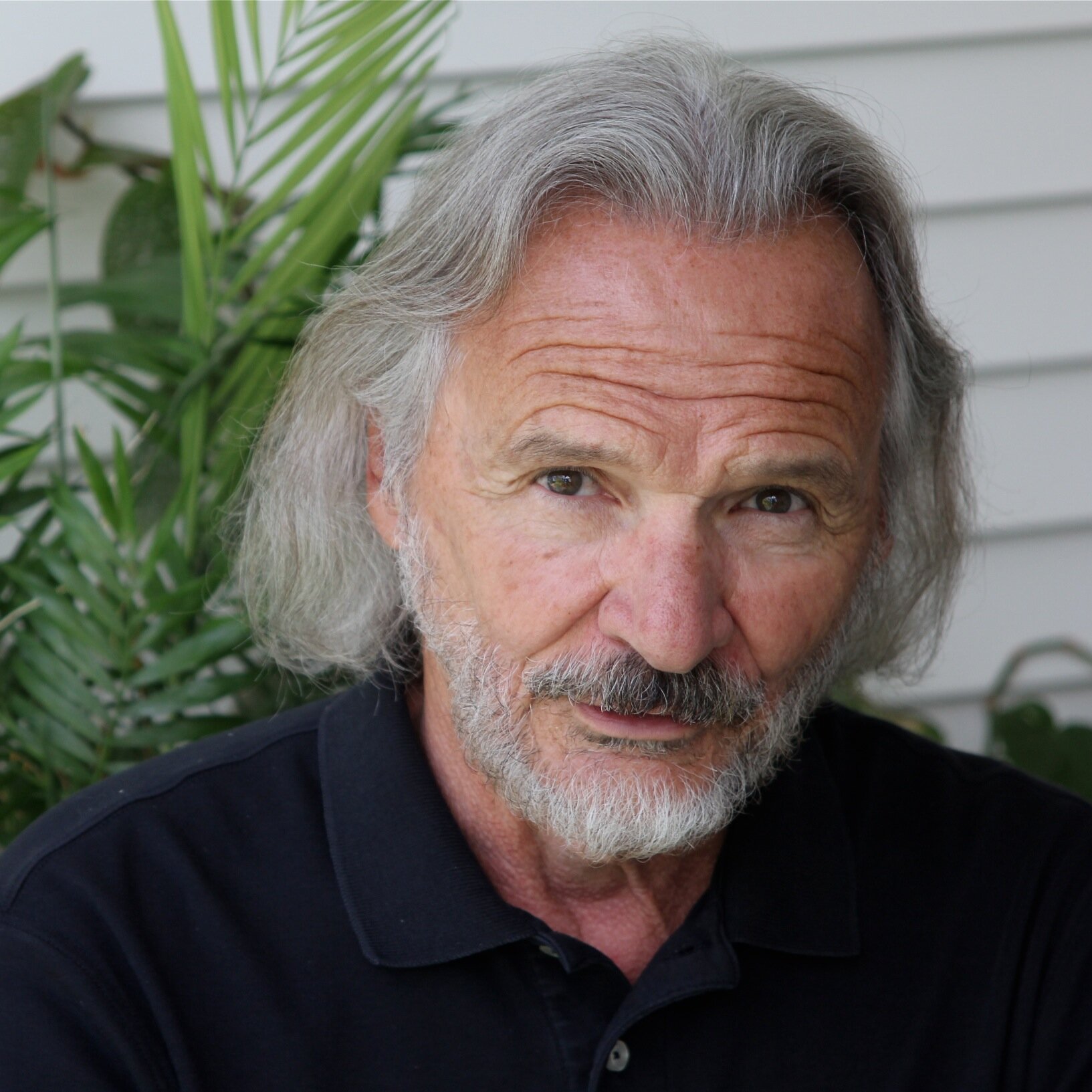 Bill Cerbin is a Professor of Psychology and founding director of the Center for Advancing Teaching and Learning at the University of Wisconsin-La Crosse. In a lengthy career, he has taught a wide variety of undergraduate and graduate psychology courses, and has worked with hundreds of college teachers on improvement of teaching and learning. He formerly co-directed the Wisconsin Teaching Fellows and Scholars program with Tony Ciccone. Bill was a Carnegie Scholar with the Carnegie Academic for the Scholarship of Teaching and Learning (class of 1999). Since 2003, he has directed the Lesson Study Project, which supports college instructors to use lesson study practices to improve teaching and student learning. He is the author of a book on lesson study in higher education (Stylus, 2011), and numerous articles about teaching and learning. His niche in SoTL is in applying research from the learning sciences to improve teaching and learning.
Bill Cerbin is a Professor of Psychology and founding director of the Center for Advancing Teaching and Learning at the University of Wisconsin-La Crosse. In a lengthy career, he has taught a wide variety of undergraduate and graduate psychology courses, and has worked with hundreds of college teachers on improvement of teaching and learning. He formerly co-directed the Wisconsin Teaching Fellows and Scholars program with Tony Ciccone. Bill was a Carnegie Scholar with the Carnegie Academic for the Scholarship of Teaching and Learning (class of 1999). Since 2003, he has directed the Lesson Study Project, which supports college instructors to use lesson study practices to improve teaching and student learning. He is the author of a book on lesson study in higher education (Stylus, 2011), and numerous articles about teaching and learning. His niche in SoTL is in applying research from the learning sciences to improve teaching and learning.
Anthony (Tony) Ciccone is Professor Emeritus of French, founding director of the Center for Instructional and Professional Development at the University of Wisconsin-Milwaukee, and former director of the UW System Undergraduate Teaching Improvement Council (UTIC, now OPID) and the Wisconsin Teaching Fellows Program. He has served as President of the International Society for the Scholarship of Teaching and Learning (ISSOTL) and Director of the Carnegie Academy for the Scholarship of Teaching and Learning (CASTL). Tony has presented nationally and internationally on SoTL inquiry, provided book chapters on doing SoTL work at the institutional level, and published his own research on student reflection based on a study of student learning in his freshman seminar on comedy. With Pat Hutchings and Mary Huber, he co-authored The Scholarship of Teaching and Learning Reconsidered: Institutional Impact and Integration. Tony has received an AMOCO Award for Teaching Excellence and the French Teacher of the Year Award from the Wisconsin Association of Foreign Language Teachers. He has also authored a book and several articles on Molière, and two French-language textbooks. He is especially proud of his daughter, Emily, a doctor of internal medicine and pediatrics, and his son, Mark, a doctoral student in history. Tony enjoys a good game of golf and is hoping to have one someday.
Lisa Kornetsky is a Professor Emeritus of Theatre Arts from the University of Wisconsin-Parkside. A nationally recognized artist/educator, Lisa has received the Stella C. Gray Teaching Excellence Award twice, the Hesburgh Award for Faculty Development programming, and the Eugene Craven Award (given each year by UW System to a staff member for service). For ten years, she served as the Director of the Office of Professional and Instructional Development for the UW System, before returning to Parkside to teach and direct. A founding member of Upstart Theatre, Lisa has also directed at the Piccolo-Spoleto Festival, the Edinburgh Fringe Festival, and at the Milwaukee Chamber Theatre in collaboration with UW-Parkside. She has published on the issues surrounding critique in the performance classroom and has recently begun writing a play about her father.
Film Screening
Retrospective & Works in Progress
Portia Cobb, UW-Milwaukee
Internationally known video artist Portia Cobb shares retrospective work and two newer works in progress: Along Toogoodoo and a short documentary (yet untitled) about a collaborative performance produced while an artist-in-residence at The Lynden Sculpture Garden in Milwaukee. Professor Cobb teaches courses in Ethnographic Video Production and Radical Black Film at UW-Milwaukee. Her visual works often investigate the politics of place and identity.
Portia Cobb is an Associate Professor, in the Department of Film, Video, Animation and New Genres, at University of Wisconsin-Milwaukee and the former director of its Community Media Project, an arts incubator and workshop providing production training and access serving teens and young adults within Milwaukee’s central city. Her art practice is an interdisciplinary fusion of auto-ethnography, documentary essay, personal diary and folklore. She is deeply interested in themes that examine home, community, rooted identity, flight, flux, memory and forced forgetting. Current research examines her family’s Gullah Geechee centric heritage within coastal South Carolina.
In 1992, when Portia joined the Department of Film faculty at UW-Milwaukee, she also became the fourth Director of the Community Media Project, a unique program that provided “free” training in film and video production for residents living within the city’s poorest zip-codes. In that role, she was responsible for direct community engagement. The classroom was off-campus, in the field- Milwaukee’s central city. Projects created within the communities we serve, were made as tools for advocacy within those spaces. Sadly, by 1999 the CMP was no longer financially sustainable, however, Cobb adapted its curriculum for two courses: Multicultural America (MCA) and Ethnographic Video that she continues to teach.
- MCA (Film 150) is a General Education Requirement and all enrolled students must complete 15 hours of community-based service learning during the semester with predesignated non-profit community partners. They typically produce a short digital story or visual essay or collaborative podcast about their engagement-as a final project.
- Ethnographic Video, is an advanced production workshop where film majors are encouraged to work on a collaborative documentary portrait of places, individuals or social justice themed events.
Keynote
Bill Cerbin, UW-La Crosse
A Science of Learning for Teaching
The learning sciences have produced thousands of studies about how and why people learn or don’t learn what they are taught. Much of this research could be valuable for educators, but who has time to read and think about research outside one’s own field of expertise. Consequently, little of what we know about learning gets translated into practice. This is unfortunate; without deep understanding of how learning works, how can teachers make informed decisions about how best to support student learning?
In the spirit of trying to bridge the gap between arcane research on learning and the needs of classroom teachers, this talk highlights research findings that have significant implications for teaching. Some of the research confirms common sense ideas about learning, some of it is counterintuitive, and some of it challenges commonly held beliefs about how students learn. Attend this talk and all will be revealed . . .
Bill Cerbin is a Professor of Psychology and founding director of the Center for Advancing Teaching and Learning at the University of Wisconsin-La Crosse. In a lengthy career, he has taught a wide variety of undergraduate and graduate psychology courses, and has worked with hundreds of college teachers on improvement of teaching and learning. He formerly co-directed the Wisc Teaching Fellows and Scholars program with Tony Ciccone.
Bill was a Carnegie Scholar with the Carnegie Academic for the Scholarship of Teaching and Learning (class of 1999). Since 2003, he has directed the Lesson Study Project, which supports college instructors to use lesson study practices to improve teaching and student learning. He is the author of a book on lesson study in higher education (Stylus, 2011), and numerous articles about teaching and learning. His niche in SoTL is in applying research from the learning sciences to improve teaching and learning.
Workshops
A. Specialized Workshops
Two full afternoon sessions provide a "deep dive" into (1) conflict resolution through dialogue and performance OR (2) strategies for designing and assessing disciplinary writing tasks.
These two workshops will meet for the full afternoon on both Wednesday and Thursday, 1:15 p.m. – 4:00 p.m. The Theatre of Empowerment will perform before Faculty College on Friday morning.
THE THEATRE OF EMPOWERMENT: Teaching and Learning Conflict Transformation
Through Dialogue, Storytelling, and Performance
Jonathan Shailor, UW-Parkside
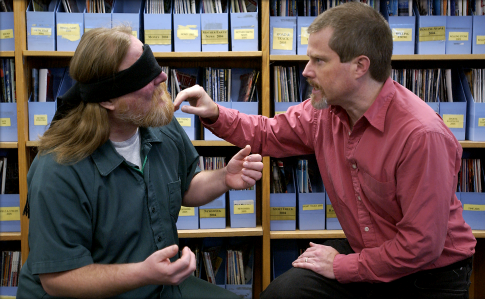
Jonathan Shailor (right) rehearsing King Lear with an actor at the Racine Correctional Institution at Sturtevant, Wisconsin.
In this highly interactive workshop series, Jonathan will guide participants through a process of exploring creative and compassionate responses to moral conflict. As part of this process, participants will select a current issue that is of concern to group members. Using dialogue, storytelling, and improvisation, participants will explore the issue, and from that exploration, develop an interactive theatre piece. On Friday, the group will perform for Faculty College, inviting the audience into a lively conversation about the issue, and more broadly, conflict, creativity, and compassion in higher education.
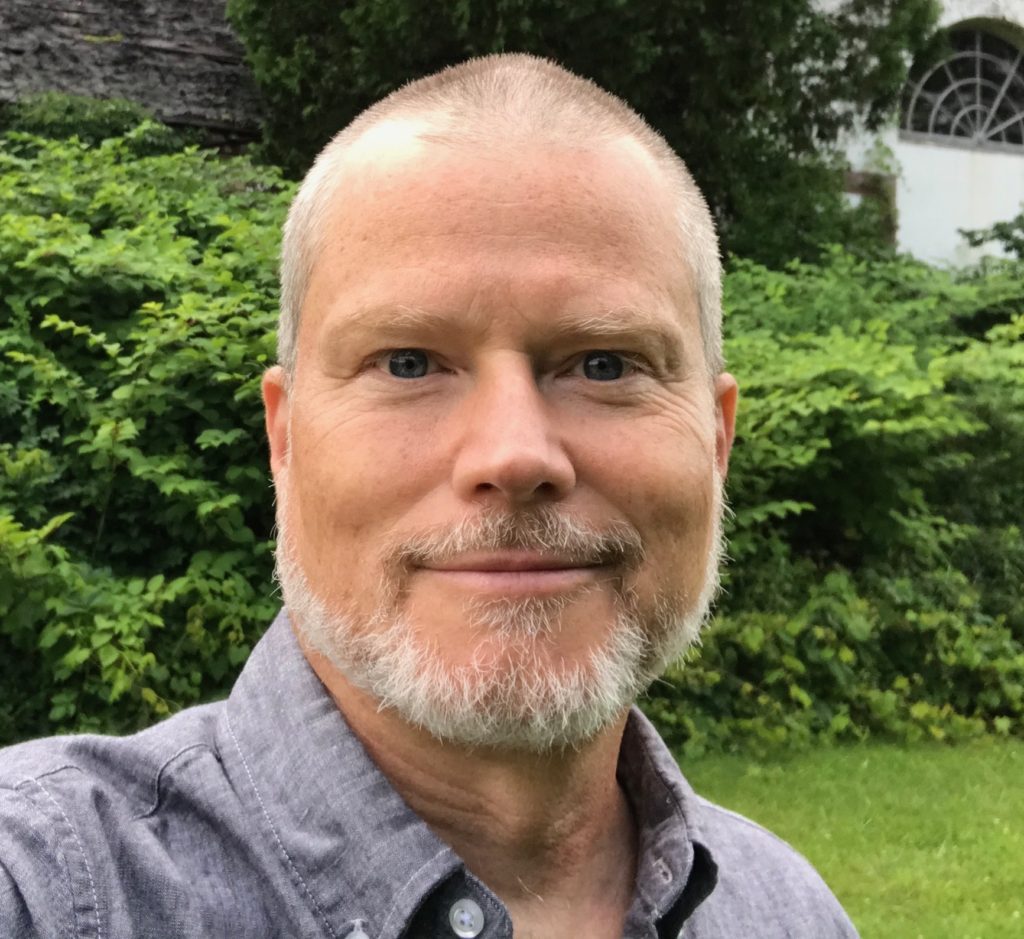
Dr. Shailor is a Professor of Communication at the University of Wisconsin-Parkside, and Director of The Certificate Program in Conflict Analysis and Resolution, which he founded in 1996. Each semester, Jonathan and his students in The Conflict Program bring The Theatre of Empowerment to multiple audiences, including (at various times) schools, colleges, nonprofit organizations, prisons, and a homeless shelter. His class opened UW System’s Spring Conference on Teaching & Learning on April 12, 2018 by performing and facilitating dialogue regarding sexual assault. Jonathan’s published research includes the essay “Kings, Warriors, Magicians, and Lovers: Prison Theatre and Alternative Performances of Masculinity” (2013), and the books Empowerment in Dispute Mediation: A Critical Analysis of Communication (1994), and Performing New Lives: Prison Theatre (2010). He is the founder and director of The Shakespeare Prison Project (2004 – present), a program that has been featured in The New York Times and on National Public Radio. Jonathan is also an Associate and Former Fellow at the CMM Institute for Personal and Social Evolution (2015), and a recipient of The Sister Joel Read Civic Engagement Practitioners Award, given by Wisconsin Campus Compact (2017). He lives in Kenosha with his wife and son – and their cat Trisket, a refugee from Racine Correctional Institution.
Writing for High-Impact Learning: Strategies for Designing and Assessing Disciplinary Writing Tasks
Holly Hassel, North Dakota State University
Jill Stukenberg, UW-Stevens Point at Wausau
The Association of American Colleges & Universities (AAC&U) identifies writing-intensive courses as a high-impact practice, as does the UW System. Such courses ask students to write for different purposes and audiences; to develop rhetorical knowledge of disciplinary conventions, and to engage in writing processes that allow students to do both formal and informal writing that supports deep learning in the field. This workshop will introduce participants to disciplinary knowledge from writing studies that will equip them to identify the values of their own areas of disciplinary expertise. Through reading assignments, writing activities, group work, and reflective writing, workshop participants will enhance their abilities to create effective writing tasks and assignments, support students through the writing process, and use strategies for aligning those assignments with assessment criteria. Best practices for assessment of student writing will also be addressed.
Holly Hassel is Professor of English and on the graduate faculty in the Rhetoric, Writing, and Culture Ph.D. program at North Dakota State University. She previously taught for 16 years at the University of Wisconsin-Marathon County, formerly a campus of the UW Colleges. She teaches courses ranging from writing studio, basic writing, and first-year composition to advanced writing workshop, introduction to writing studies as well as graduate courses in composition research and writing instruction. Her research in the field of writing studies has appeared in peer-reviewed journals such as College Composition and Communication, College English, Pedagogy, the Journal of Writing Assessment and Writing Program Administration. She is currently editor of the journal Teaching English in the Two-Year College and on the editorial board of the Journal of Writing Assessment.
Jill Stukenberg is an Associate Professor of English at UW-Stevens Point at Wausau. Her fifteen-year span of teaching experience includes developmental writing, first-year composition, reading courses, and creative writing, and recent pedagogical presentations and publications on the teaching of writing include “Rethinking Inspiration” (presentation at Creative Writing Studies Organization 2017 conference) and “Deep Habits: The Workshop as Critique in Creative Writing” (published in Arts & Humanities in Higher Education 2016), and “Working Well Together: Collaboration on Both Sides of the Classroom,” at the Two-Year-College English Association Conference 2019.’ She was a 2016 – 2017 Wisconsin Teaching Fellow. With Dr. Holly Hassel, she developed “Building Writing into the Curriculum” a workshop for faculty across the UW Colleges, and “(Re)Writing Assignments: Using Writing to Enhance Learning Across the Curriculum,” offered at Faculty College 2018.
B. Eclectic Workshops: Robust, Durable Learning - Oral Histories - Scholarship of Teaching & Learning (SoTL)
Enrollment in these four 75-minute sessions will give you a broad overview of multiple epistemologies and their intersection with the Scholarship of Teaching and Learning.
All four sessions will be held consecutively throughout Wednesday and Thursday afternoon, 1:15 p.m. – 4:00 p.m.
Getting into the Scholarship of Teaching and Learning (SoTL)
Alison Staudinger UW-Green Bay
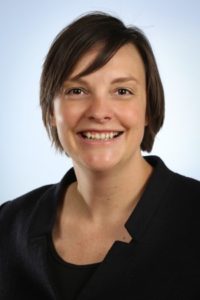 The Scholarship of Teaching and Learning is both a form of research and a way of improving teaching through organized inquiry into student learning and going “public” with this inquiry. This workshop, aimed at those new to SoTL, will be about finding joy and excitement in this work and also the basics of developing a research project about learning—two ways of “getting into” SoTL. Working together, we’ll turn a teaching frustration into a research question that you could answer using methods that are already familiar to you, as well as walk through some common types of SoTL questions, prominent literatures in SoTL and some research design. Please come ready to talk about a particular challenge you’ve faced in your teaching!
The Scholarship of Teaching and Learning is both a form of research and a way of improving teaching through organized inquiry into student learning and going “public” with this inquiry. This workshop, aimed at those new to SoTL, will be about finding joy and excitement in this work and also the basics of developing a research project about learning—two ways of “getting into” SoTL. Working together, we’ll turn a teaching frustration into a research question that you could answer using methods that are already familiar to you, as well as walk through some common types of SoTL questions, prominent literatures in SoTL and some research design. Please come ready to talk about a particular challenge you’ve faced in your teaching!
Alison Staudinger is an Associate Professor of Democracy and Justice Studies, Women’s & Gender Studies, and Political Science at the University of Wisconsin–Green Bay, where she has taught courses in gender, constitutional law, political theory, and American politics since 2012. Her co-edited volume (with Katia Levintova, another WTFS alum), Gender in the Political Science Classroom was published by Indiana University Press in 2018 argued for centralizing gender-forward pedagogy and content in the discipline, rooted in SoTL research. Her SoTL research interests include reading practices, learning metaphors, storytelling, qualitative and interpretative research methods, and social justice. She was a Wisconsin Teaching Fellow in 2014-2015, and published her research from this program in Teaching and Learning Inquiry in 2018. This is her second year as workshop presenter at Faculty College and as co-director of the Wisconsin Teaching Fellows & Scholars.
How to be a Citizen-Scholar: On Being a Colleague and a Peer
Nancy Chick, Rollins College, Florida
This workshop will extend the opening keynote by inviting participants to identify the scholarly practices of the responsible peer. What does it look like to maintain both our professional standards and our humanity? How do we balance rigor and relationships? What are the ‘civic duties’ of our scholarly selves? In this workshop, we will reflect on specific moments in our work where we most need this kind of intention and action (e.g., peer review, citations, where else?) and develop specific steps we can take to start effecting this kind of change in ourselves and in our colleagues.
Nancy Chick joined Rollins College in July of 2018. Since earning her PhD in 1998, she has been a faculty member in English Departments — first in the former University of Wisconsin Colleges, where she achieved the rank of full professor in the department of English and co-directed the Wisconsin Teaching Fellows and Scholars Program on one of the smallest campuses in the UW System, then at Vanderbilt University, where she served as assistant director for the university’s Center for Teaching. and most recent appointment was as academic director for the Taylor Institute for Teaching and Learning at the University of Calgary. During her life as a faculty member, she has been a passionate participant in faculty development on teaching and learning. In the last 15 years, she has taken on more leadership roles in this faculty development, particularly related to the scholarship of teaching and learning (SoTL).
Nancy has authored, co-authored, edited, and co-edited a range of publications about teaching, about the results of her SoTL projects, and about SoTL as a field. In 2011, she was selected as the founding editor of Teaching & Learning Inquiry, the journal of the International Society for the Scholarship of Teaching and Learning (ISSOTL), and selected Gary Poole (University of British Columbia) as co-editor, and the journal is now in wrapping up its sixth year of publication. She brought TLI‘s editorial office with her to Rollins and will be working with Rollins students as the journal’s editorial manager. For more information, view Nancy’s online portfolio at nancychick.com.
Precious Spaces: Stories from within
Portia Cobb, UW-Milwaukee
This workshop will offer best practices and methods for community engaged & collaborative development of a short documentary from within the field-when time and resources are limited. In this workshop, Portia will share examples of her documentary work and that of students.
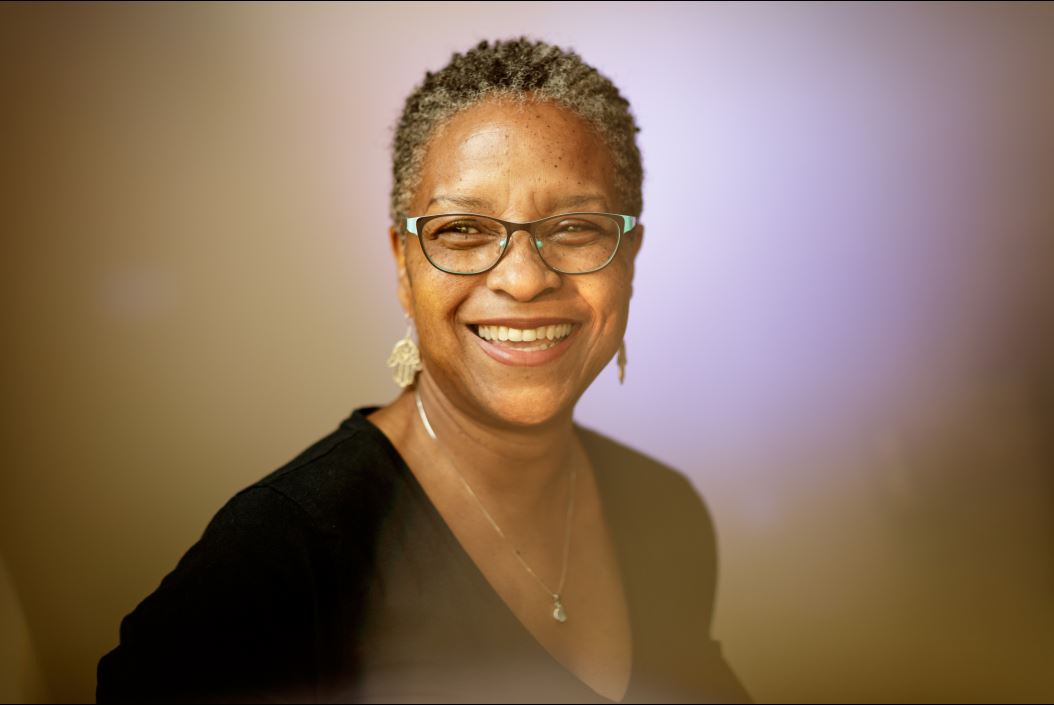
Portia Cobb is an Associate Professor, in the Department of Film, Video, Animation and New Genres, at University of Wisconsin-Milwaukee and the former director of its Community Media Project, an arts incubator and workshop providing production training and access serving teens and young adults within Milwaukee’s central city. Her art practice is an interdisciplinary fusion of auto-ethnography, documentary essay, personal diary and folklore. She is deeply interested in themes that examine home, community, rooted identity, flight, flux, memory and forced forgetting. Current research examines her family’s Gullah Geechee centric heritage within coastal South Carolina.
In 1992, when Portia joined the Department of Film faculty at UW-Milwaukee, she also became the fourth Director of the Community Media Project, a unique program that provided “free” training in film and video production for residents living within the city’s poorest zip-codes. In that role, she was responsible for direct community engagement. The classroom was off-campus, in the field- Milwaukee’s central city. Projects created within the communities we serve, were made as tools for advocacy within those spaces. Sadly, by 1999 the CMP was no longer financially sustainable, however, Cobb adapted its curriculum for two courses: Multicultural America (MCA) and Ethnographic Video that she continues to teach.
- MCA (Film 150) is a General Education Requirement and all enrolled students must complete 15 hours of community-based service learning during the semester with predesignated non-profit community partners. They typically produce a short digital story or visual essay or collaborative podcast about their engagement-as a final project.
- Ethnographic Video, is an advanced production workshop where film majors are encouraged to work on a collaborative documentary portrait of places, individuals or social justice themed events.
HIPs in the STEM Classroom
Heather Pelzel, UW–Whitewater
The “depth vs. breadth” question is an ongoing debate in science education with vocal advocates on both sides of the fence. One of the frequent concerns for instructors when adopting new classroom approaches is that they will have to sacrifice content, but multiple studies have confirmed that coverage does not frequently result in understanding or retention. The use of many high-impact practices (HIPs), including collaborative projects, authentic research projects, and community-based learning, provide an opportunity to uncover the content as it is needed to answer the questions and challenges they are facing.
The use of HIPs in higher education has been visibly gaining traction in recent years and is at the heart of the AAC&U’s LEAP initiative. More than being a “hot topic”, however, there is a growing body of evidence that HIPs are correlated with strong positive educational outcomes for students, including students that have traditionally been underserved. In this workshop, participants will examine how the inclusion of HIPs in the STEM classroom can be accomplished without sacrificing rigor or decreasing content knowledge retention. HIPs in the STEM classroom can instead have additive effects with increases in student persistence in the major, increased engagement in the classroom and community, and decreases in achievement gaps.
Heather Pelzel is an Associate Professor of Biological Sciences at the University of Wisconsin – Whitewater where she teaches courses in cell biology, microbiology, and public health. She was a Wisconsin Teaching Fellow in 2014-2015 with a project that focused on the use of Team-Based Learning to improve student success in a mid-level required course for Biology majors. At UWW, Pelzel has been a LEARN Center Faculty Fellow, a Teaching Scholar, and a departmental Master Advisor. Pelzel is currently a 2018-2019 SENCER (Science Education for New Civic Engagements and Responsibilities) Leadership Fellow working on a course redesign to implement the Tiny Earth project in an existing microbiology course. Her pedagogical approaches center around the use of complex problems and real data to increase student engagement and learning. Heather is the newly hired co-director of UW System’s Wisconsin Teaching Fellows & Scholars.

